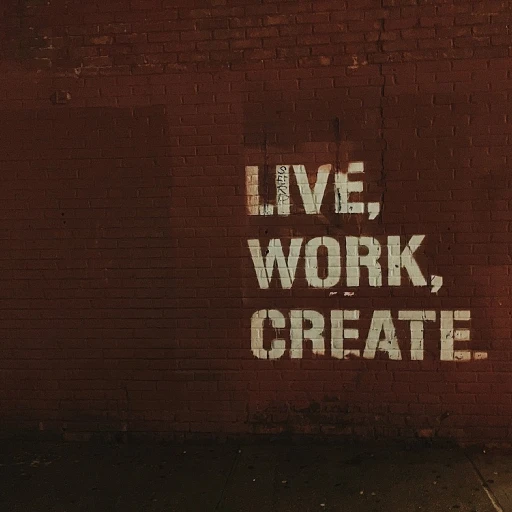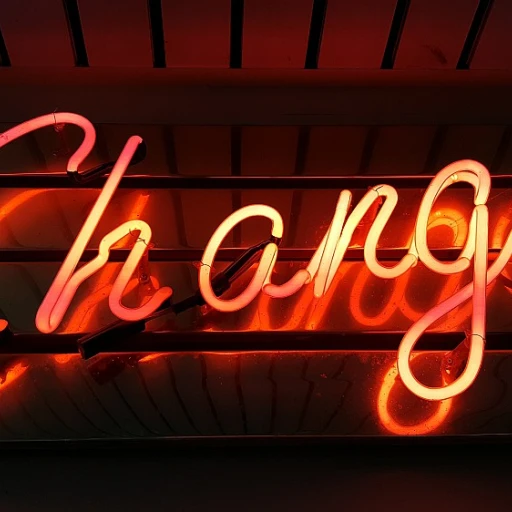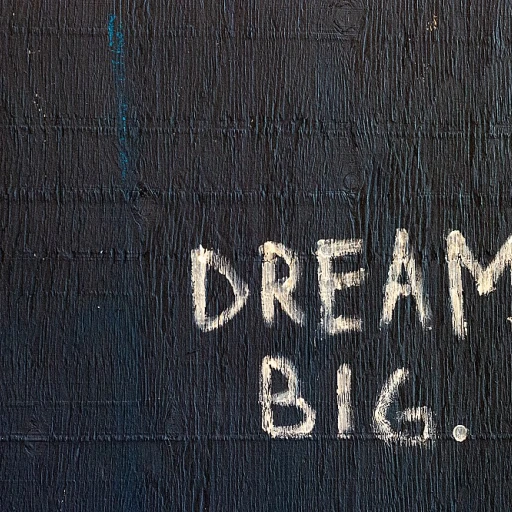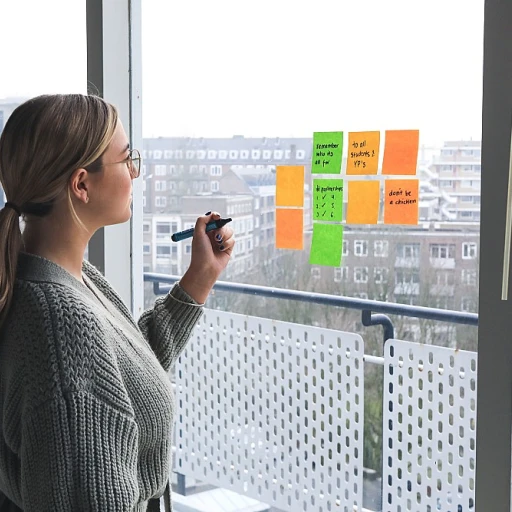
Understanding the significance of an interview scheduled notification
What Does It Mean When Your Interview Is Scheduled?
Receiving an interview scheduled notification is a pivotal moment in the hiring process. It means your application has stood out among many candidates, and the employer wants to learn more about you. This step is not just about setting a date and time; it’s a signal that you are now an active participant in the next phase of the interview process. The scheduling process can vary based on the company’s tools and practices, but the core message is the same: you are being considered seriously for the role.
The Role of Scheduling in the Interview Process
Scheduling interviews is more than just finding an available slot on a calendar. It’s a coordinated effort between the candidate, the interviewer, and sometimes a panel. Companies in the United States often use scheduling tools to streamline this process, making it easier to book interviews and manage multiple candidates. You may receive an email with a proposed interview schedule or a link to select the best time based on your availability. In some cases, an email template is used to send candidates all the necessary details, including the interview format and who will be present.
- Interview scheduling tools: These help create interview slots and avoid scheduling conflicts.
- Panel interviews: If more than one interviewer is involved, finding a common time can be challenging, so flexibility is key.
- Interview schedule confirmation: Always confirm your scheduled interview promptly to secure your spot.
Why the Interview Schedule Matters
Understanding the importance of your interview schedule helps you approach the process with confidence. The way interviews are scheduled can reveal much about the company’s organization and respect for candidates’ time. Efficient scheduling also sets the tone for your experience as a candidate. If you’re curious about how technology is transforming this process, you can read more about how workplace equity software transforms HR job interviews.
Once your interview is scheduled, it’s time to shift your focus to preparation. The next steps involve preparing your mindset, researching the company and HR department, and understanding what to expect from different interview formats. Each of these will help you make the most of your scheduled interview and stand out as a candidate.
Preparing your mindset for the HR interview
Building Confidence Before Your Scheduled Interview
When you receive an interview scheduled notification, it’s natural to feel a mix of excitement and nerves. The scheduling process marks a significant step in the hiring journey, signaling that you’ve moved forward as a candidate. To approach the interview with confidence, it’s important to prepare your mindset as much as your resume.- Understand the Process: Scheduling interviews is a structured part of the hiring process. Whether you’re using a scheduling tool, responding to an email, or booking a time through a calendar invite, each step is designed to streamline the experience for both the interviewer and the candidate.
- Embrace Flexibility: Sometimes, you may be asked to select from several times or to join a panel interview. Being flexible with your availability can help create a positive impression and may even improve your chances of fitting into the interview schedule.
- Prepare for Different Formats: Interviews can be conducted in various formats, including video calls, phone interviews, or in-person meetings. Knowing the format in advance allows you to mentally prepare and plan your time accordingly.
Managing Your Time and Reducing Stress
Scheduling interviews often means juggling other commitments. To avoid last-minute stress, add the scheduled interview to your calendar as soon as you receive confirmation. Set reminders and review any instructions sent by the hiring team. If you need to reschedule, communicate promptly and professionally—this demonstrates respect for the interviewer’s time and the overall process.Staying Informed and Trusting the Process
The interview process can vary based on the company, the role, and even the region, such as the United States. Familiarize yourself with frequently asked questions and the typical scheduling process for HR roles. Trust that the hiring team is working to create the best case scenario for both parties. For deeper insights into how technology is shaping the HR interview landscape, explore how workplace equity software transforms HR job interviews. Remember, every scheduled interview is an opportunity to showcase your skills and fit for the role. Approach each step with preparation and a positive mindset to make the most of your interview experience.Researching the company and HR department
Getting to Know the Organization and Its HR Team
Before your scheduled interview, investing time in researching the company and its HR department can make a real difference. This step is often overlooked, but it helps candidates stand out during the interview process. When you understand the organization’s values, culture, and how the HR team operates, you’re better equipped to answer questions and ask insightful ones yourself.
- Company background: Start by exploring the company’s website, especially the About Us and Careers sections. Look for recent news, press releases, and annual reports. This gives you a sense of the company’s direction and priorities.
- HR department structure: Many organizations in the United States share information about their HR team on their website or LinkedIn. Learn about the department’s size, focus areas, and any recent initiatives. This can help you tailor your answers based on the interviewer’s role.
- Interview scheduling tools: Some companies use scheduling tools to book interviews and send candidates automated reminders. Familiarize yourself with these tools if mentioned in your interview email. Being comfortable with the scheduling process shows you’re organized and tech-savvy.
- Frequently asked questions: Research common HR interview questions and review the company’s own FAQ or blog posts. This can help you anticipate what might come up during your scheduled interview.
It’s also a good idea to review the company’s approach to the hiring process. Check if they use panel interviews, what their interview schedule looks like, and how they communicate with candidates. If you receive an email template for scheduling interviews, read it carefully for instructions and key dates. Mark the interview on your calendar and confirm the time zone, especially if you’re interviewing remotely.
For a deeper dive into preparing for HR interviews and understanding what companies look for, you can explore this guide to succeeding in HR job interviews. It offers practical advice based on real hiring practices.
Taking these steps not only helps you feel more confident but also demonstrates to the interviewer that you respect their time and the company’s process. In the best case, your preparation will set you apart from other candidates and make your scheduled interview a positive experience for everyone involved.
Common HR interview formats and what to expect
What Types of HR Interviews Can You Expect?
Once your interview is scheduled, knowing what format to expect can help you prepare and manage your time effectively. HR interviews can vary widely based on the company, the position, and the stage of the hiring process. Understanding these formats is key to feeling confident and ready when you receive that interview scheduled email.
- Phone Interviews: Often the first step in the interview process, these are usually brief and focused on screening candidates. Make sure your calendar is clear, and find a quiet space to take the call.
- Video Interviews: Increasingly common, especially in the United States, video interviews require you to be comfortable with technology. Test your tool or platform ahead of time and check your internet connection to avoid last-minute issues.
- In-Person Interviews: These may involve meeting with one or more interviewers. Sometimes, you’ll face a panel interview, where multiple people ask questions. Arrive early and bring any requested documents or identification.
- Panel Interviews: In this format, several interviewers will scheduled to meet you at the same time. Each interviewer may focus on different aspects of your experience or skills. Prepare to address questions from various perspectives and maintain eye contact with everyone.
- Assessment or Case Interviews: Some HR roles require candidates to complete tasks or case studies based on real workplace scenarios. These interviews test your problem-solving skills and how you approach HR challenges.
How the Interview Scheduling Process Works
The scheduling process is often managed by HR coordinators using a scheduling tool or calendar system. You may receive an email template with available times to book interviews. Respond promptly to secure your preferred slot. In some cases, the company will scheduled interviews based on interviewer availability, so flexibility can be helpful.
Once your interview is scheduled, double-check the date, time, and location (or video link). Add the interview schedule to your calendar and set reminders. If you need to reschedule, communicate as early as possible. This shows respect for the interviewer’s time and keeps the process professional.
What to Expect During the Interview
During the interview, you may be asked questions about your experience, your understanding of HR processes, and your ability to handle sensitive situations. Frequently asked questions can include scenarios about conflict resolution, compliance, and employee relations. Be ready to discuss your approach and provide examples based on your past experience.
Remember, the interview process is a two-way street. It’s also your chance to ask questions about the company’s HR department, the team, and the hiring process. This helps you determine if the role and organization are the right fit for you as a candidate.
Addressing tricky HR-specific interview questions
Handling Challenging HR Interview Questions
When your interview is scheduled, you can expect to face some tricky questions that go beyond the basics. HR professionals are trained to evaluate not just your skills, but also your fit within the company’s culture and your understanding of the hiring process. Here’s how to approach these moments with confidence:- Behavioral Questions: You may be asked to describe a time you handled conflict, managed multiple priorities, or dealt with a challenging schedule. Use the STAR method (Situation, Task, Action, Result) to structure your answers clearly and concisely.
- Process and Scheduling Questions: HR interviewers often want to know how you prioritize tasks, especially when scheduling interviews or managing a busy calendar. Be ready to discuss the tools you use (like email templates or scheduling software), and how you ensure the best use of time for both candidates and interviewers.
- Panel Interviews: In some cases, you’ll face a panel. Each interviewer may focus on a different aspect of the hiring process, such as how you would create an interview schedule or handle interview scheduling for multiple candidates. Stay calm, address each question directly, and refer to your experience with scheduling interviews or using a tool to book interviews.
- Frequently Asked Questions: Expect questions about your experience with interview scheduling, sending candidate communications, and managing the interview process from start to finish. You might be asked how you would send a candidate an interview scheduled email or what steps you take to ensure the interview schedule is clear for all parties.
- Case Scenarios: Sometimes, you’ll be given a scenario based on real-life scheduling challenges. For example, you may be asked how you would handle a last-minute change in the interview schedule or how you would coordinate interviews scheduled across different time zones, especially in the United States. Be specific about your process and how you communicate changes to both candidates and interviewers.
Tips for Answering Effectively
- Take a moment to think before you answer. It’s better to pause and organize your thoughts than to rush.
- Draw on real experiences from your previous roles, focusing on your role in the scheduling process or how you improved the interview process.
- Be honest if you haven’t faced a particular situation, but explain how you would approach it based on your understanding of best practices.
- Show your awareness of the importance of clear communication, especially when sending emails or scheduling interviews for multiple candidates.
Following up after your interview is scheduled
Making the Most of Your Scheduled Interview
Once your interview is scheduled, your preparation does not stop. The way you follow up can set you apart from other candidates and show your professionalism throughout the hiring process. Here are some practical steps to take after receiving your interview schedule:
- Confirm the Details: Double-check the interview time, date, and location or video link. Add the interview to your calendar and set reminders. If you are in the United States or dealing with different time zones, verify the scheduled interview time based on your location.
- Respond Promptly: Send a brief, polite email to confirm your attendance. Thank the interviewer or the HR scheduling tool for the opportunity and restate the interview details to avoid any confusion. This step reassures the hiring team that you are organized and attentive.
- Prepare Your Materials: Gather any documents or information requested in the interview email. This may include your resume, references, or answers to frequently asked questions. Having these ready shows you respect the interview process and value the interviewer’s time.
- Test Your Technology: If your interview is virtual, check your internet connection, camera, and microphone. Book interviews in a quiet space and minimize distractions to ensure a smooth experience for both you and the panel.
- Plan for the Unexpected: In case you need to reschedule, notify the interviewer as soon as possible. Use a clear, professional email template to request a new time. Flexibility is appreciated, but try to avoid last-minute changes unless absolutely necessary.
Staying Engaged During the Scheduling Process
Throughout the interview scheduling process, keep communication clear and professional. If you have multiple interviews scheduled, organize them in your calendar and track each interview schedule. This helps you manage your time and reduces the risk of double-booking.
Some companies use scheduling tools to create interview slots and send candidates automated reminders. If you receive such notifications, follow the instructions carefully and select the best available time for you. In the case of a panel interview, confirm the number of interviewers and the expected duration so you can prepare accordingly.
Finally, remember that every step in the hiring process is an opportunity to demonstrate your reliability and communication skills. By staying proactive and organized, you increase your chances of making a positive impression and moving forward in your HR career journey.













